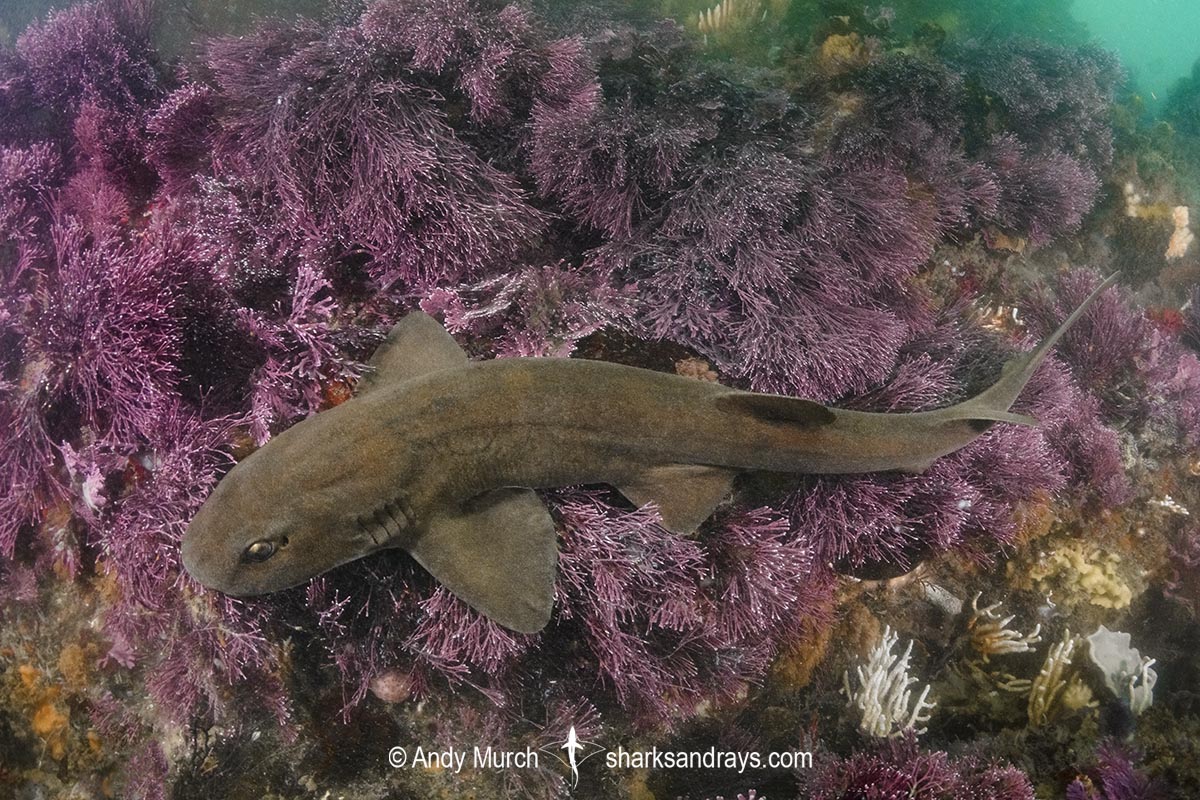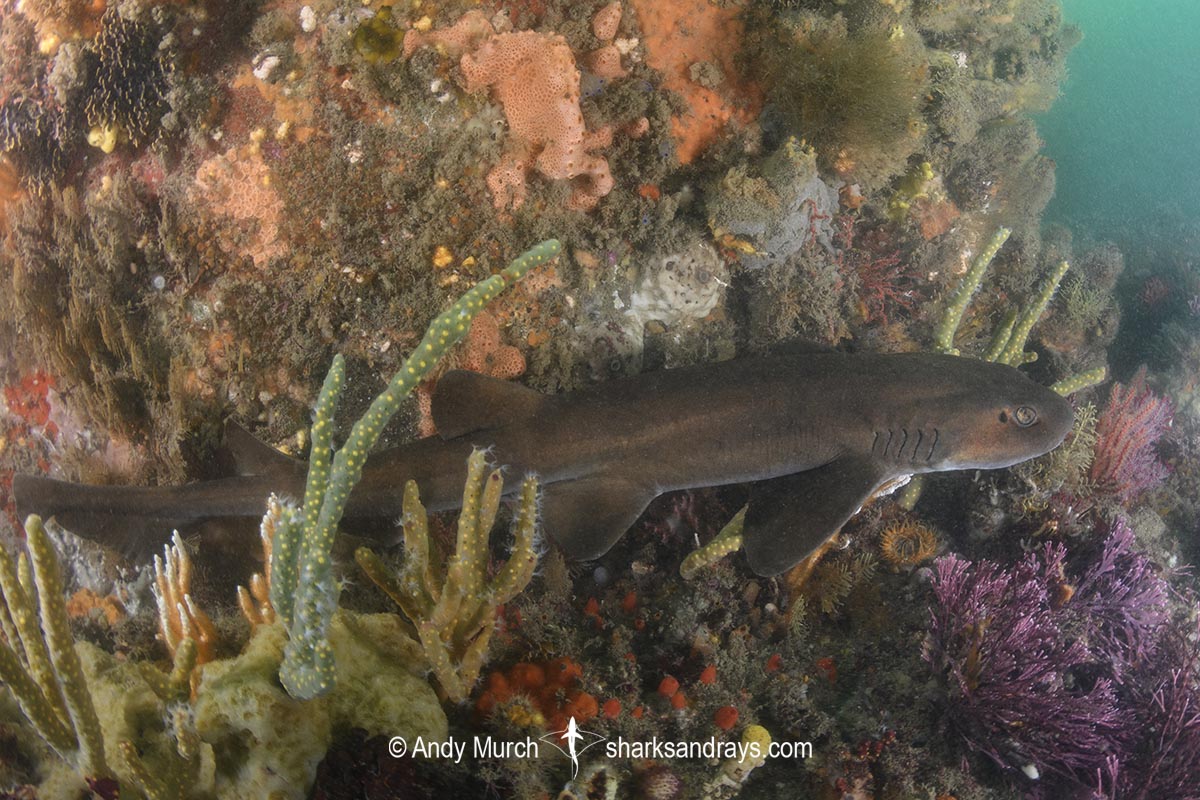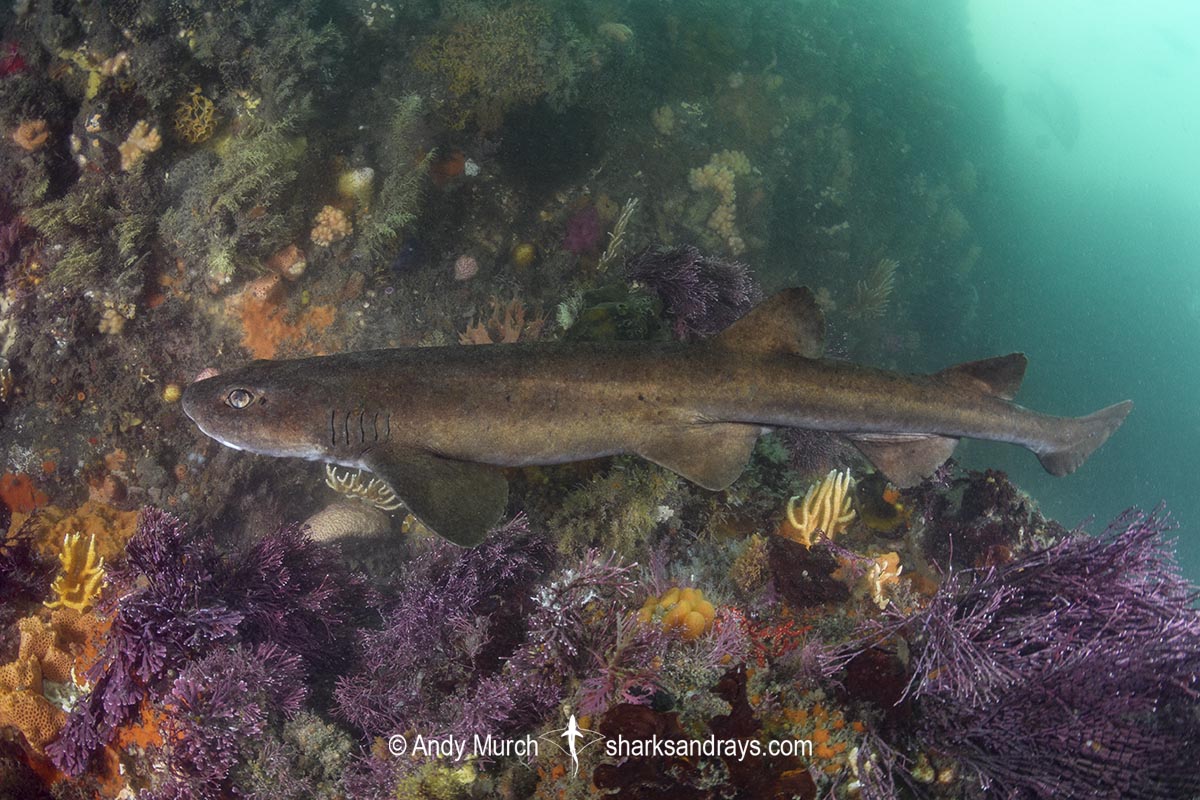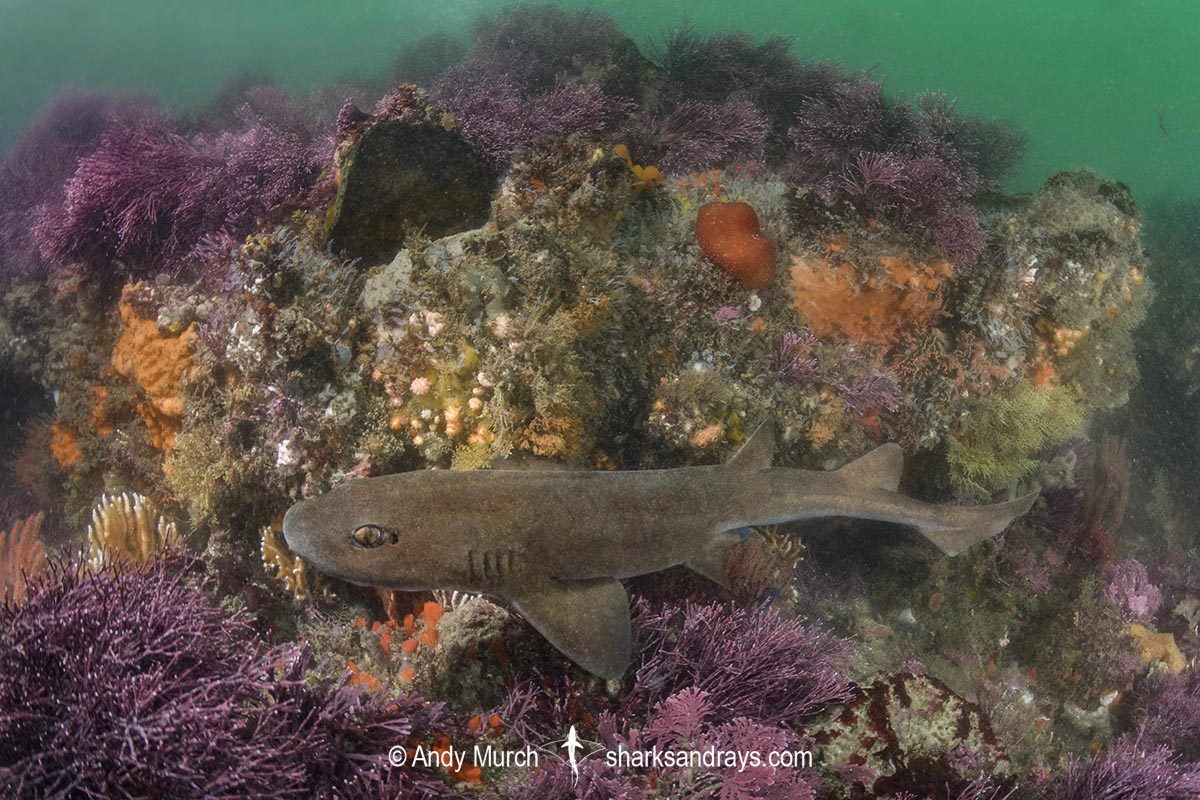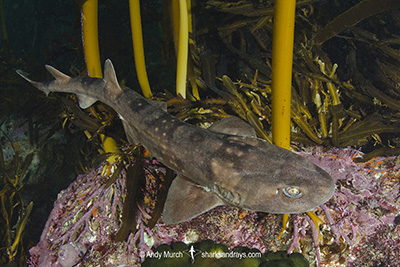Common names
Brown Shyshark, Plain Happy.
Binomial
Haploblepharus fuscus.
Synonyms
None.
Identification
Head broad and bluntly rounded. Body very stocky compared to other shysharks. Greatly expanded nasal flaps terminate at mouth. First dorsal origin approximately level with pelvic fin insertion. First and second dorsal fins of equal size. Pectoral and dorsal fin apexes rounded. Lower lobe of caudal fin straight edged.
Colour usually plain brown dorsally, sometimes with dusky saddles. Ventral surface white.
Size
Maximum length 69cm.
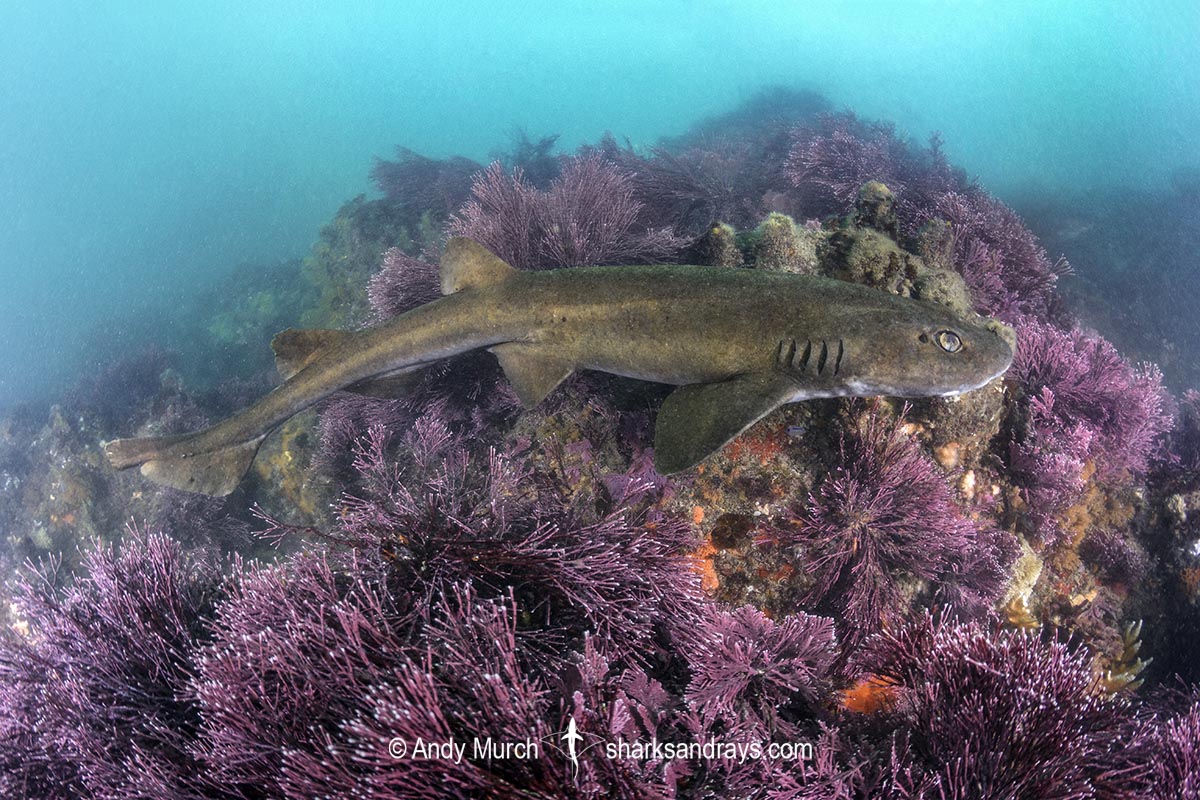
Conservation Status
VULNERABLE
The Brown Shyshark (Haploblepharus fuscus) is a bycatch component of trawl and line fisheries. It is also impacted by habitat degradation due to coastal development. It is estimated that the Brown Shyshark has undergone a population reduction of 30–49% over the past 60 years.
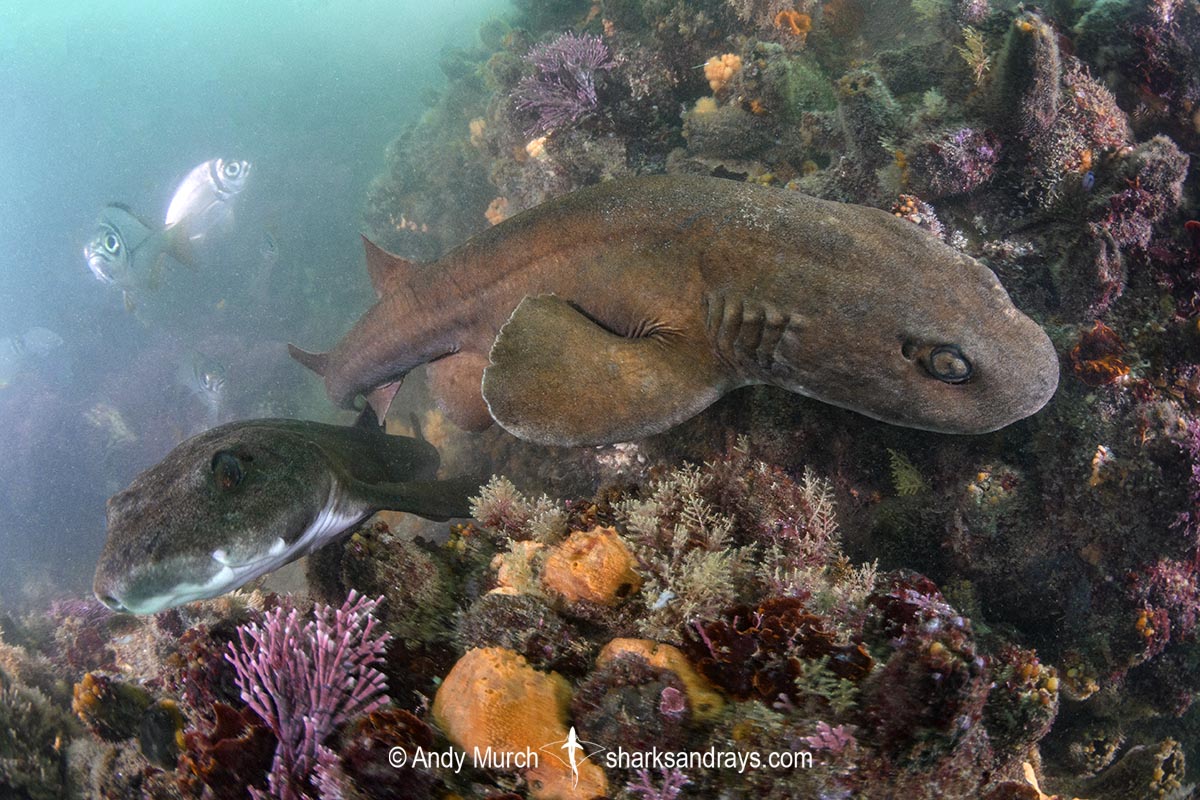
Habitat
Rocky reefs and adjacent sand flats. Inshore to at least 35m.
Distribution
The brown shyshark is endemic to South Africa in the Southeast Atlantic and Western Indian Oceans, occurring from the Western Cape to Durban.
Reproduction
Oviparous. Lays paired egg cases.
Diet
Small bony fishes and crustaceans.
Behavior
Rests in crevices during the day. Curls into a ball with tail over eyes when threatened; hence common name ‘shy shark’.
Reaction to divers
Like other shysharks, the brown shyshark is extremely tolerant of divers. Easy to attract with small amounts of bait.
Diving logistics
Even by chumming on suitable reefs, the brown shyshark is difficult to locate throughout much of its range. The only place that I have encountered this species is in East London, while chumming in 10m on the north side of the bay. East London has notoriously bad visibility. On the dives where this species showed up, I saw at least three different animals.
It is quite likely that brown shysharks can also be seen at dive destinations further southwest, such as Gqeberha Port Elizabeth) and Plettenberg Bay, but reports are scarce.
The brown shyshark is one of the target species on Big Fish Expeditions’ South African Endemic Shark and Ray Expedition.

